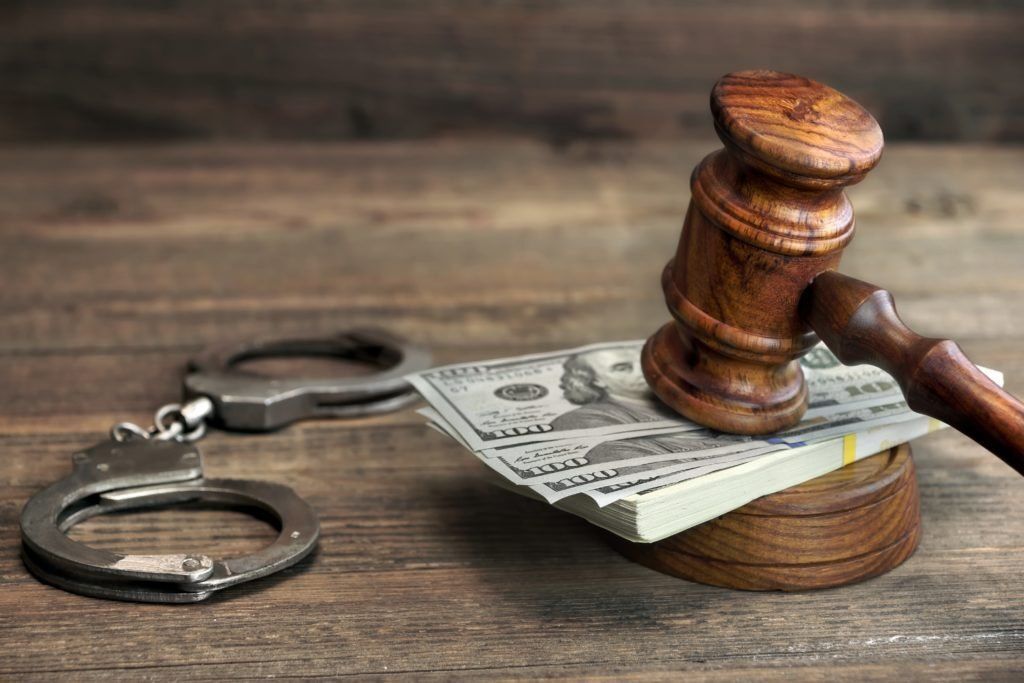How To Post Bail In Las Vegas

Bail Posting Process In Las Vegas
The bail posting process in Las Vegas is fairly simple but can still feel rather overwhelming to individuals who are in jail or whose loved one is in jail. Here is a short breakdown before we talk about specifics.
- Bail Process: One of our agents will describe the bail process to you in detail so that you understand exactly to expect. We’ll also work with you to find the best possible way to begin the jail release process, including the process of posting bail in Las Vegas.
- Payment: Once you understand how the bail process works, it’s time to pay the small percentage of the total bond amount. We can move on to the next step only after the fee is paid.
- Release: Finally, it’s time to get the release process started. 24/7 Las Vegas Bail Bonds will reach out to the jail on your behalf to post bail and have you or your loved one released as quickly as possible.
Let’s take a closer look at posting bail in Las Vegas and what to expect as you move through the system.
Free Consultation
Contact Us
How Criminal Cases Are Handled
When someone is arrested in Las Vegas, a police officer completes an arrest report and sends it to the district attorney. They will review your case and determine whether or not to move forward. They will take a look at all of the evidence the officer has to offer and make a decision about whether they believe there is enough evidence of a crime to warrant filing charges. At this point, the case can either be dropped or readied for prosecution.
While all of this is going on, the defendant must consider their current situation and decide how they would like to proceed. To be released from jail until their court date, defendants must either pay their bail in full or reach out to a bail bonds company that can get started on bailing them out of jail in Las Vegas. Keep in mind that while it is possible to stay in jail until your arraignment, you might be waiting anywhere from two to four weeks before your date is called.
The Arraignment Process
The first court appearance that defendants attend is known as an arraignment. This is when the judge will look at the charges in question and tells the defendant the sentence they are potentially facing. Keep in mind that it might be possible to have a private attorney attend the arraignment with you, otherwise you will likely be issued a public defender. Either way, you will also need to be prepared to confirm your identity and consider how you’d like to plead.
Misdemeanor Crimes
There are two main categories into which your crime can be categorized: felony or misdemeanor. Misdemeanor crimes are considered less serious than felony crimes and carry lighter sentences overall, although that doesn’t mean that they don’t carry jail time or high fees. If you are in court for a misdemeanor charge during your arraignment, you’ll need to plead nolo contendere, not guilty, or guilty to the charges with which you are presented. If you choose to plead guilty, it’s possible that the court could sentence you at the arraignment itself.
If you choose to plead not guilty, it is likely that a pre-trial conference will be scheduled before your arraignment ends. This conference is the time during which you have the opportunity to discuss plea negotiations along with the faults and strengths of the case against you and which witnesses will be called, if any.
The next step of the legal process for misdemeanor crimes is the trial, be it by judge or jury. The pretrial points of fact and proposals will be brought up and considered during the trial, as well all evidence against you. After this part of the trial ends, you will ultimately be found guilty or not guilty of the charges. If you are found guilty, your sentence will be established after the verdict. This could include community service, a fine, jail time, counseling, substance abuse treatment, or a diversion program depending upon the exact nature of your crimes.
Felony Cases
If you are being accused of a felony in Las Vegas, you might be compelled to enter a plea at your first hearing. Once your response has been recorded, the judge will likely schedule your preliminary hearing. This is also the time where you have the right to argue for a lower bail price if you (or your lawyer) believe that the existing cost is too high. This is also true of misdemeanor cases – it’s possible to request lower bail during the arraignment regardless of exactly how your crime is categorized.
Once the court has either approved your request for lower bail or made the decision to uphold the existing amount, it’s time to decide whether you will be posting bail in Las Vegas or staying in custody until your preliminary hearing. Remember that should you choose the latter, you might be waiting for a few weeks.
The next step in prosecuting felony crimes is attending the preliminary hearing, during which the D.A. will present the evidence against you. They must show the court that a.) there was probable cause to assume a crime was being committed or had been committed, and b.) there was probable cause to assume the defendant was the perpetrator of said crime. The judge will then decide whether they feel there is enough evidence to proceed with the case. If so, you will go through a second arraignment process before the court schedules a date for your pre-trial conference. Things proceed just like the process for misdemeanor crimes from this point forward.
Wondering how to post bail in Las Vegas if you’re arrested? If you’re arrested and need to post bail in Las Vegas, you should reach out to the experienced bail bonds team at 24/7 Las Vegas Bail Bonds! Whether you or a loved one has been arrested, our professionals can help. Call us today at 702-899-2775.
